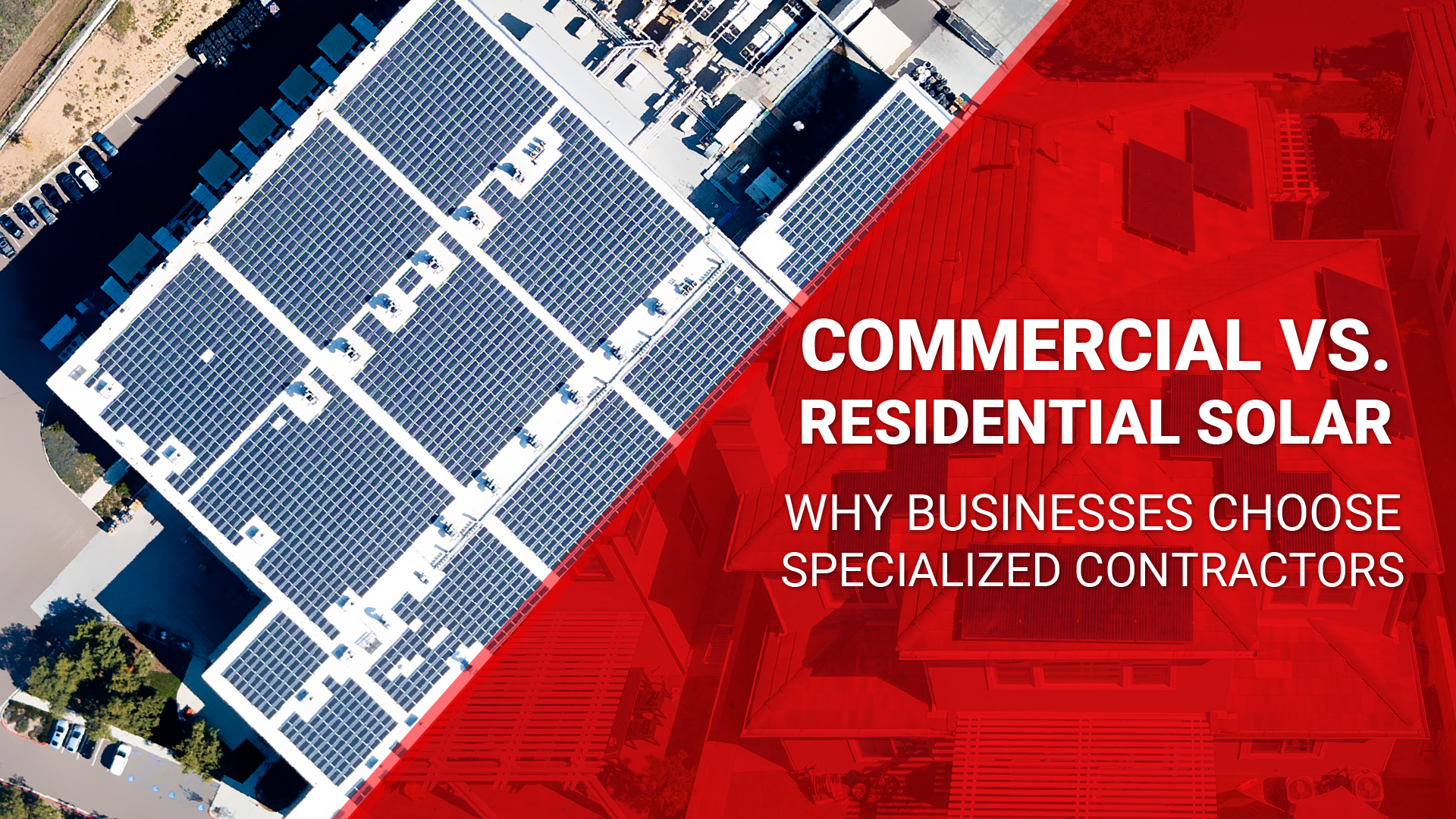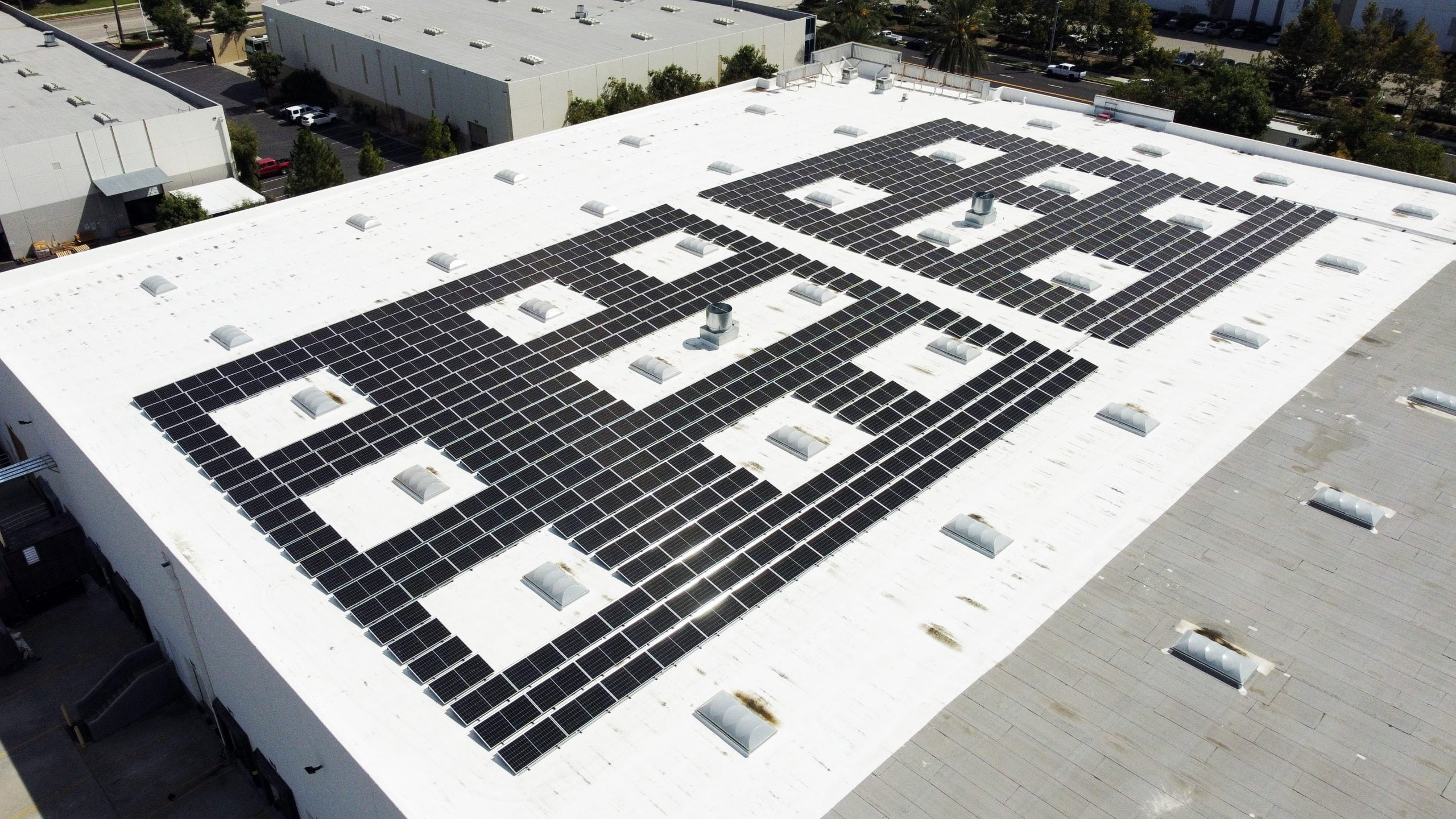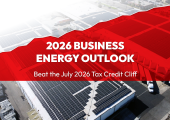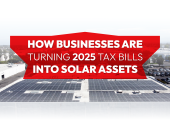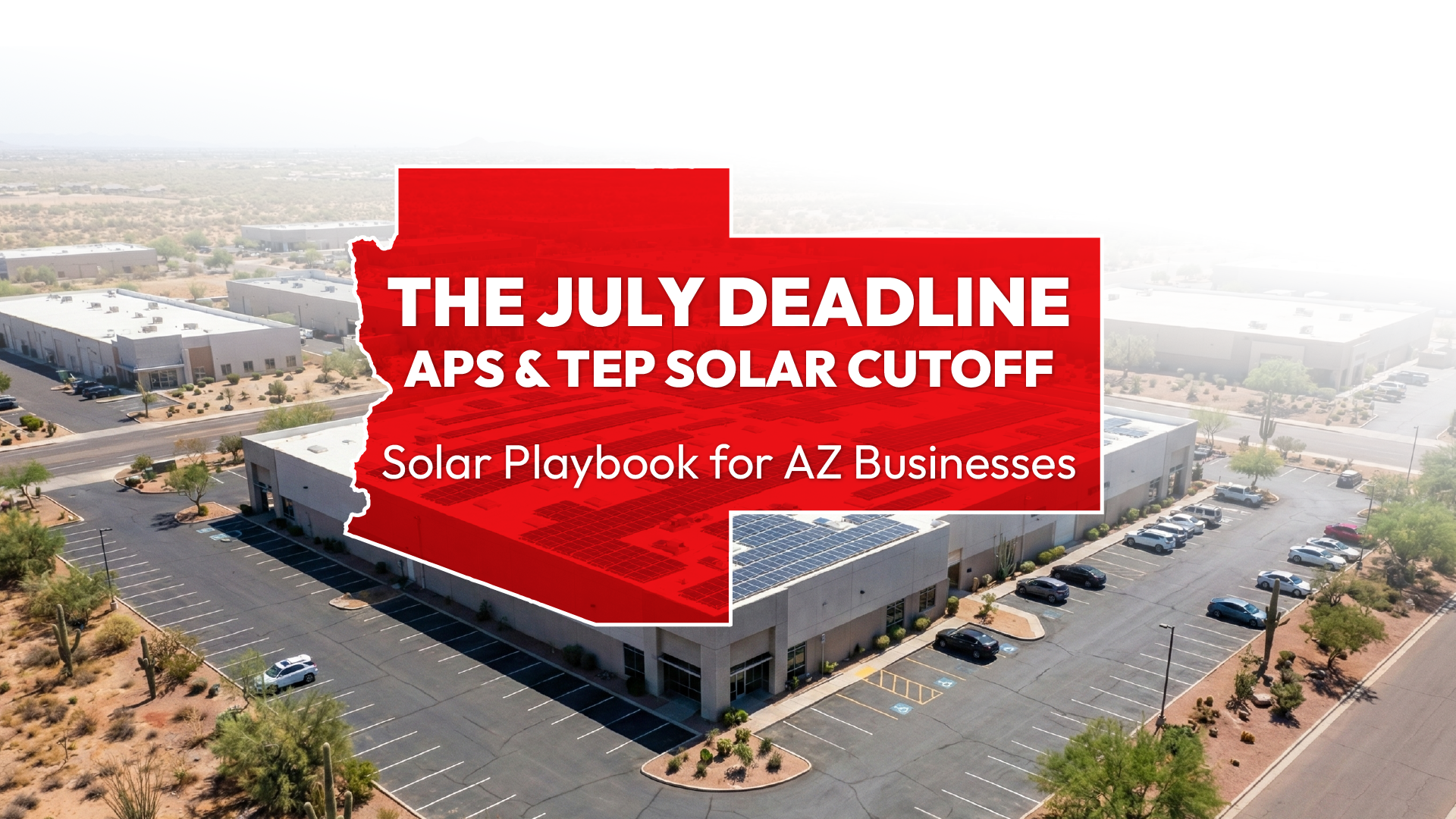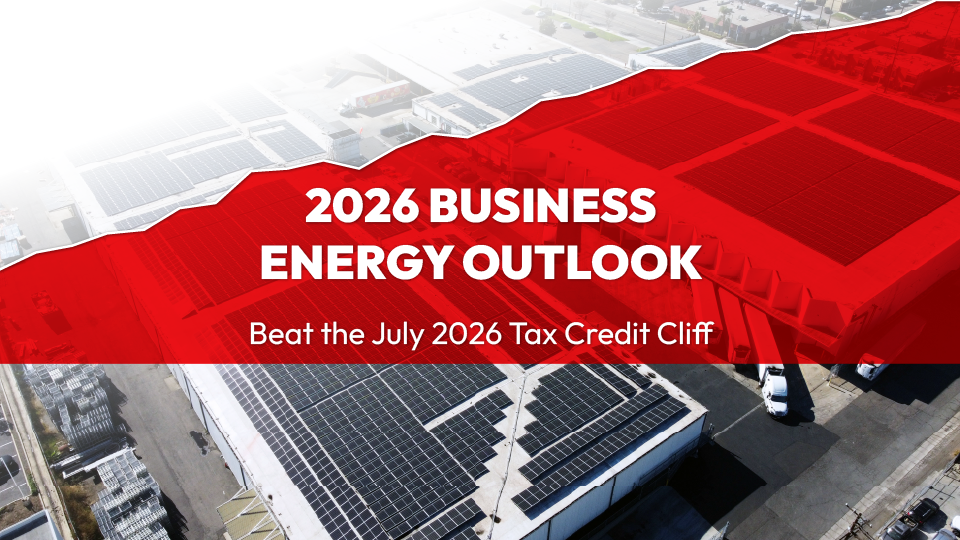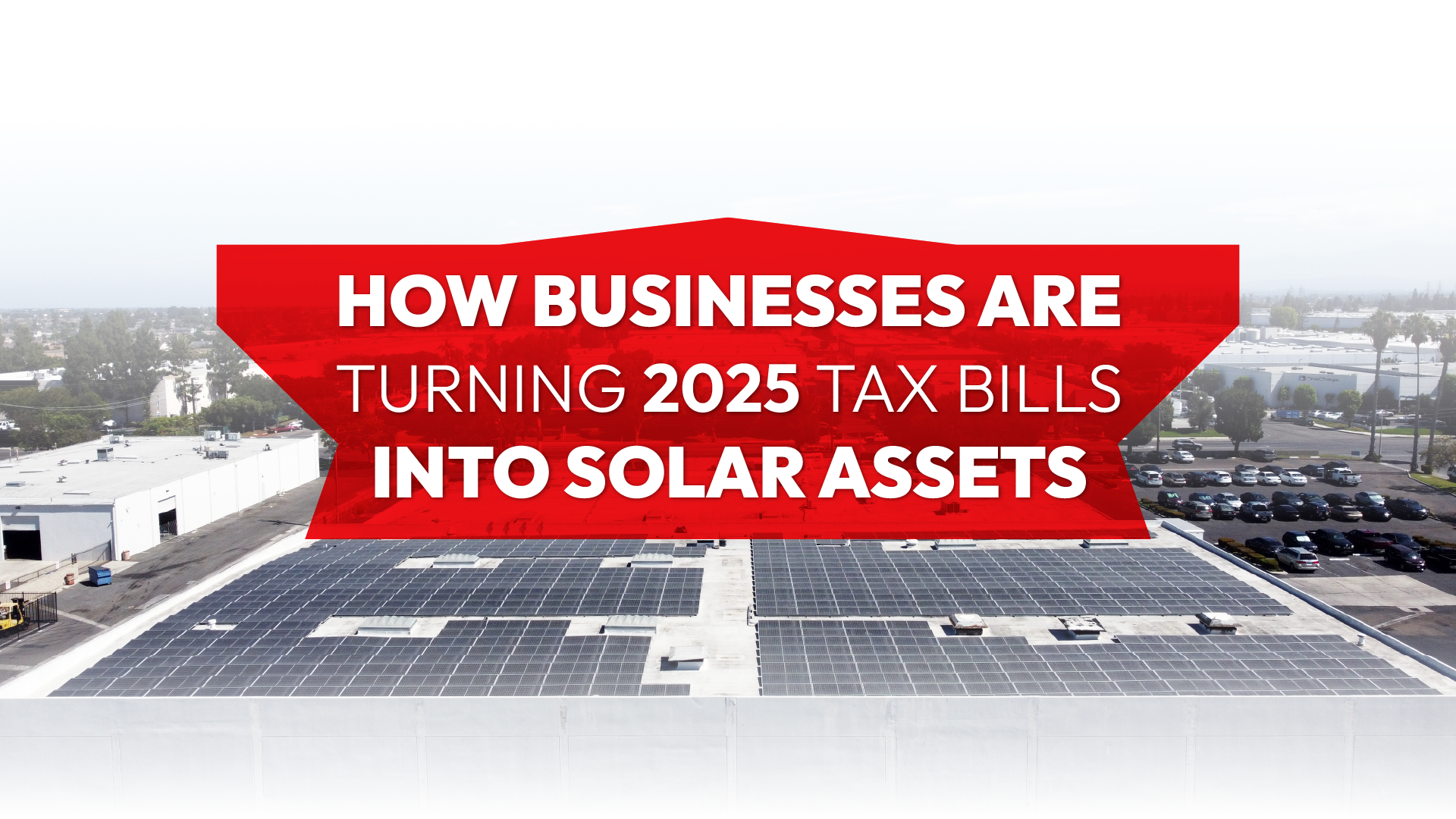Commercial vs. Residential Solar
Why Businesses Should Choose Specialized Contractors
As businesses look to solar energy to cut costs and boost sustainability, a crucial question arises – should they choose a commercial solar contractor or consider a residential installer that might promise competitive pricing? Understanding the difference between commercial and residential solar is key to making an informed decision that maximizes long-term benefits.
There are many unique considerations that commercial solar installations demand and why selecting a commercial-focused provider with an extensive portfolio, like Revel Energy, ensures both quality and longevity in the investment.
The Key Differences Between Residential and Commercial Solar
The fundamental distinction between residential and commercial solar lies in scope, scale, and the technical expertise required.
Residential solar installations focus on smaller-scale energy needs and are tailored for private homes.
In contrast, commercial solar installations involve intricate engineering, custom energy requirements, and project designs that address the complexities of larger facilities and varied electrical demands.
System Size and Power Output Needs
While residential solar setups generally range from 5kW to 10kW, commercial systems can require anywhere from 50kW to a megawatt like this project in San Marcos. This increase in power output often necessitates electrical infrastructure upgrades, larger panel arrays, more robust mounting systems, and often roof or ground-mounted structures that can handle the weight and support longer-lasting functionality.
Engineering and Design Complexity
Commercial solar projects require engineers and construction experts familiar with custom designs and layouts that work around a business’s unique needs. From placement and shading analysis to utility interconnection and compliance, commercial systems often require customized solutions for different utility requirements and should be tailored to specific business types, like manufacturing plants, warehouses, or office complexes.
Safety Standards and Compliance
When a business installs solar, it must adhere to rigorous industry standards, especially regarding safety and building codes. This includes everything from OSHA regulations for installers, specific fire codes, new prevailing wage rules and various electrical interconnection requirements. Commercial solar contractors are well-versed in these standards, ensuring that installations are both safe and compliant. Residential installers, however, may lack the familiarity and experience with these complex regulatory requirements.
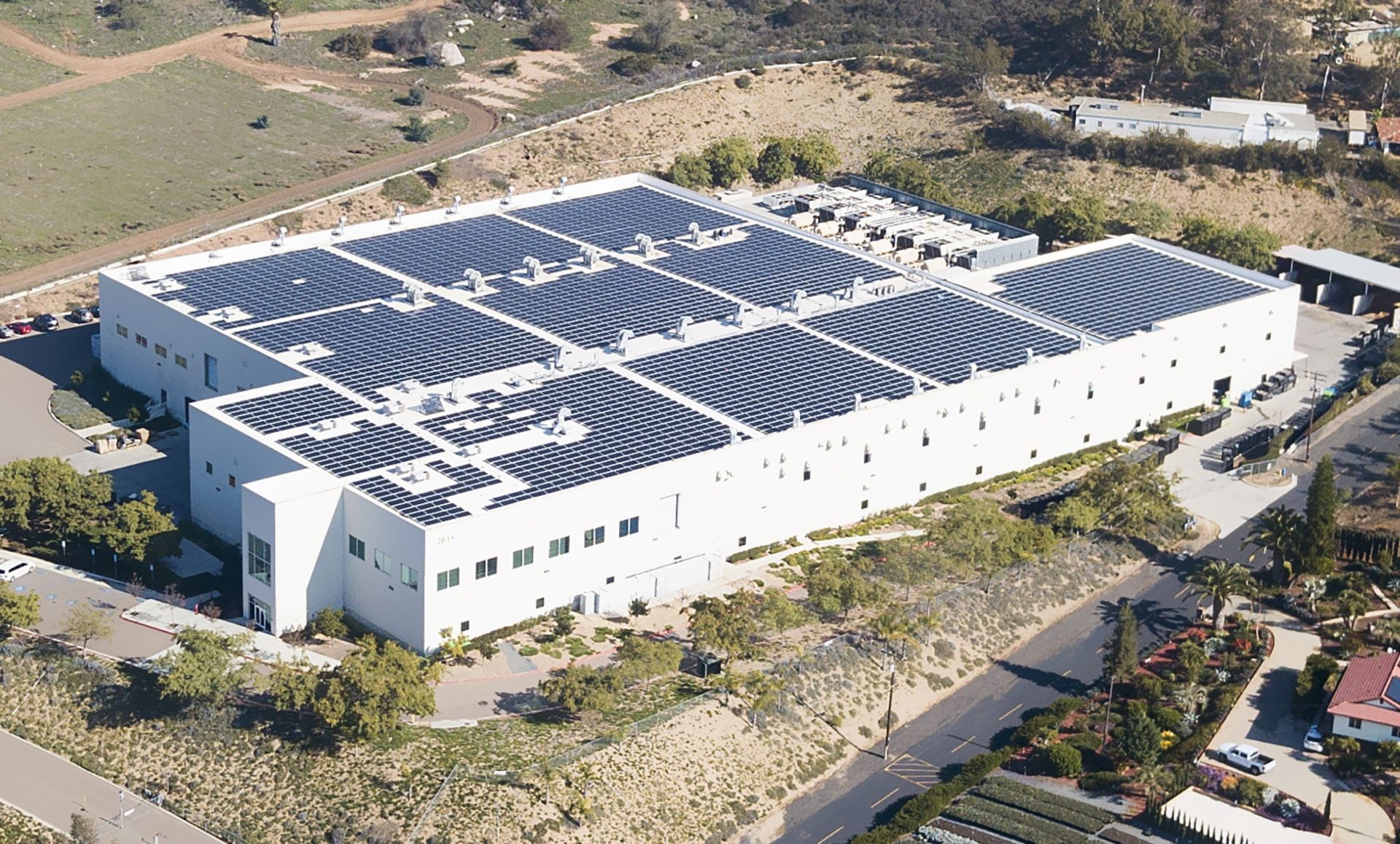
Why Experience Matters
The Limitations of Residential Solar for Businesses
Residential solar installers focus on delivering affordable, quick installations that meet homeowners’ energy needs. While this is cost-effective for small projects, the approach falls short for commercial applications. For businesses, it’s essential to prioritize a solar installer with commercial-specific engineering and construction expertise – someone who not only understands but has a track record of managing large-scale projects with high-quality construction standards.
As solar is a long-term investment for businesses, keep these points in mind:
Higher-Quality Equipment and Components
Commercial solar projects require durable, high-efficiency panels and mounting systems that withstand more wear and tear over time. Experienced commercial contractors ensure that quality is non-negotiable in both materials and installation practices, reducing the likelihood of costly repairs or replacements down the line.
Scalability and Expansion Potential
Many businesses want a solar solution that can grow with them. Commercial contractors understand the need for modular systems that allow for expansion and can design setups that accommodate future growth. In contrast, residential installers may not design with future scalability in mind, potentially limiting a business’s ability to expand its solar capacity without costly system overhauls.
System Longevity and ROI Optimization
A business’s solar investment should be designed to last well over 20 years, often with complex warranties that only qualified commercial installers can ensure are honored and maintained. Commercial projects demand long-term performance monitoring and ongoing maintenance. For businesses, selecting a trusted commercial installer directly impacts their return on investment, as a system built to commercial standards will yield higher performance and reliability over time.
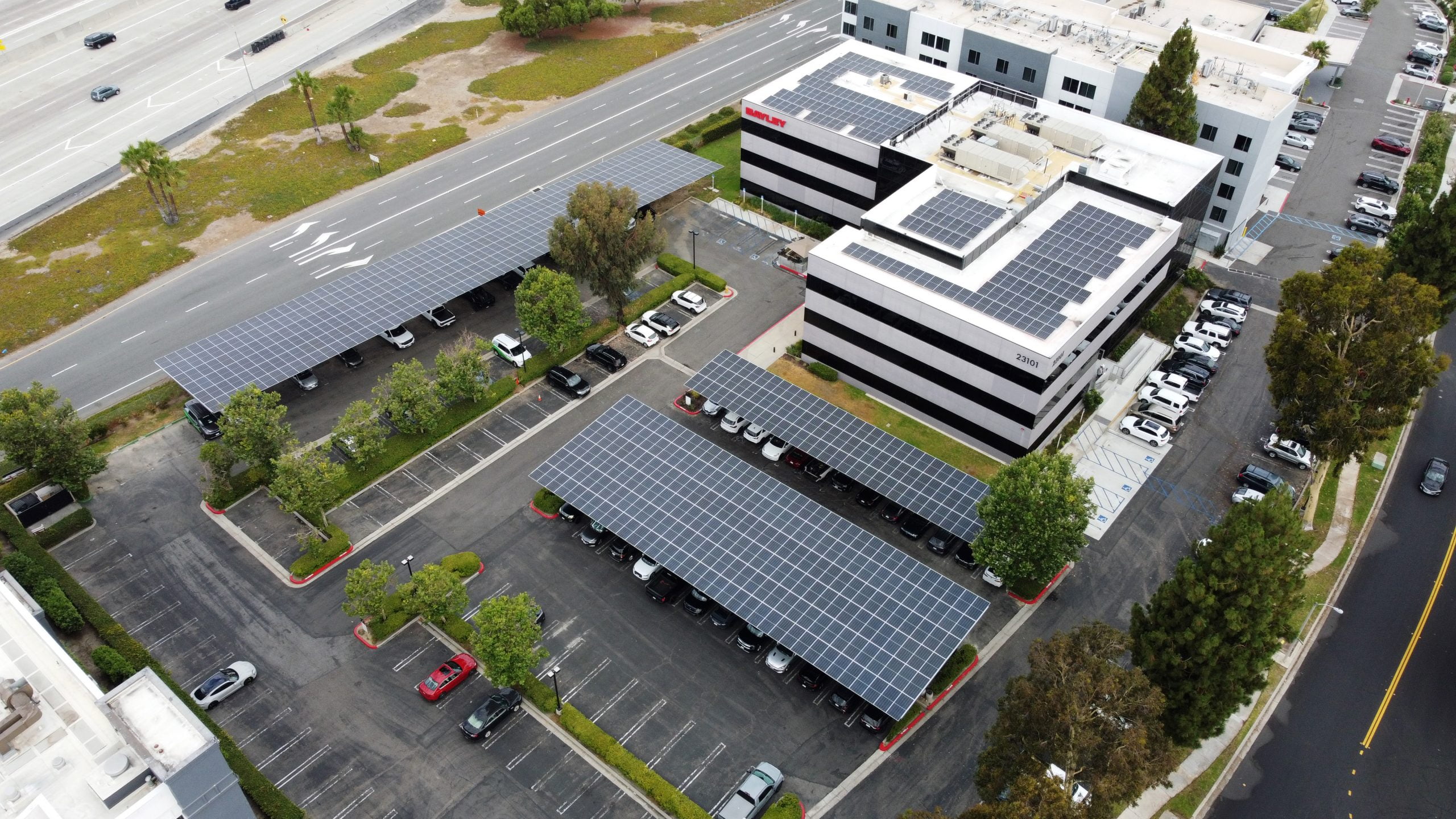
The Future of Solar for Commercial Businesses: A Sound, Sustainable Investment
As we look to the future of solar energy, the outlook for commercial solar remains exceptionally promising. Factors like rising electricity rates, declining project costs through advancements in technology, and supportive government policies make solar a sound investment for commercial entities far into the future.
- Cost Savings and Energy Resilience: Solar energy offers commercial facilities a means to hedge against volatile energy prices and reduce operating costs. As battery energy storage becomes more affordable, commercial businesses can increasingly rely on solar for energy resilience, even during peak demand or grid outages.
- Sustainability Goals and Brand Image: For businesses aiming to improve their ESG (Environmental, Social, and Governance) ratings, solar energy is a valuable asset. Many clients and consumers favor businesses that prioritize sustainability, and investing in solar energy offers businesses a visible commitment to these values.
- Federal and State Incentives: With federal tax credits currently available for commercial solar projects, alongside various state-specific incentives, businesses have strong financial motivation to make the switch now. Incentives reduce upfront costs significantly, allowing companies to capitalize on energy savings sooner. Furthermore, solar projects frequently increase the value of a commercial property, turning the business into a more valuable asset overall.
Choosing the Right Contractor
When choosing a solar contractor, businesses should prioritize a commercial solar provider with:
- Proven Experience in Commercial Solar: Choose a contractor with a portfolio of successful commercial projects.
- In-House Engineering Teams: In-house engineering teams offer streamlined communication, accountability, and a design approach tailored to commercial projects.
- Focus on Long-Term Support and Maintenance: Commercial solar installations require ongoing monitoring and maintenance, which only experienced commercial contractors can reliably deliver.
In the decision-making process, businesses may encounter residential installers who offer lower prices or quick installation promises. However, it’s important to remember that what works for a household roof will not necessarily perform optimally for a manufacturing plant or office park. Partnering with a skilled commercial solar provider ensures the installation is equipped to handle the specific demands of the business, leading to better performance and a higher return on investment.
Commercial vs. Residential Solar – A Clear Choice for Businesses
Understanding the commercial-residential solar difference can make or break a business’s investment in solar energy. By choosing an experienced commercial solar provider, businesses gain access to specialized expertise, optimized system performance, and reliable support for years to come.
Solar energy’s future is bright, and investing in the right provider ensures that businesses can make the most of this sustainable opportunity. Contact our experienced team to learn what solutions may be available for your business, learn more by filling out a contact form.
Commercial grade rooftop solar is ideal for: manufacturing, warehousing, logistics, industrial, retail, hospitality buildings and more with over 10,000 sq. ft. rooftops.
CARPORT SOLAR
Free standing carport solar generates added solar power for properties with limited rooftop space. Added benefits include shading and protection for employees vehicles.
Crucial for reducing peak demand charges. Automated to supply electricity when your panels won’t. Energy storage is ideal for businesses that incur significant peak charges.
As the popularity of electric vehicles increase, so does the demand for on-site charging. This sustainable amenity has become a parking lot fixture for competitive employers.
OUR SERVICES
TURNKEY COMMERCIAL GRADE SOLAR, ENERGY STORAGE, LED LIGHTING AND MORE.
PROFESSIONAL GUIDANCE
CUSTOM TAILORED PLANNING
CONSTRUCTION & INSTALLATION
CSLB #1106092
Client Testimonial: Kelemen Company
Corporate Business Park in Irvine, CA has created significant electricity cost savings through commercial solar installed across the 5-building business park.
Client Testimonial: Tice Gardner & Fujimoto LLP
See how this CPA firm saved on electricity and gained valuable tax credits through commercial solar that they used to keep cash in the businesses.

